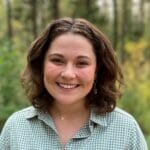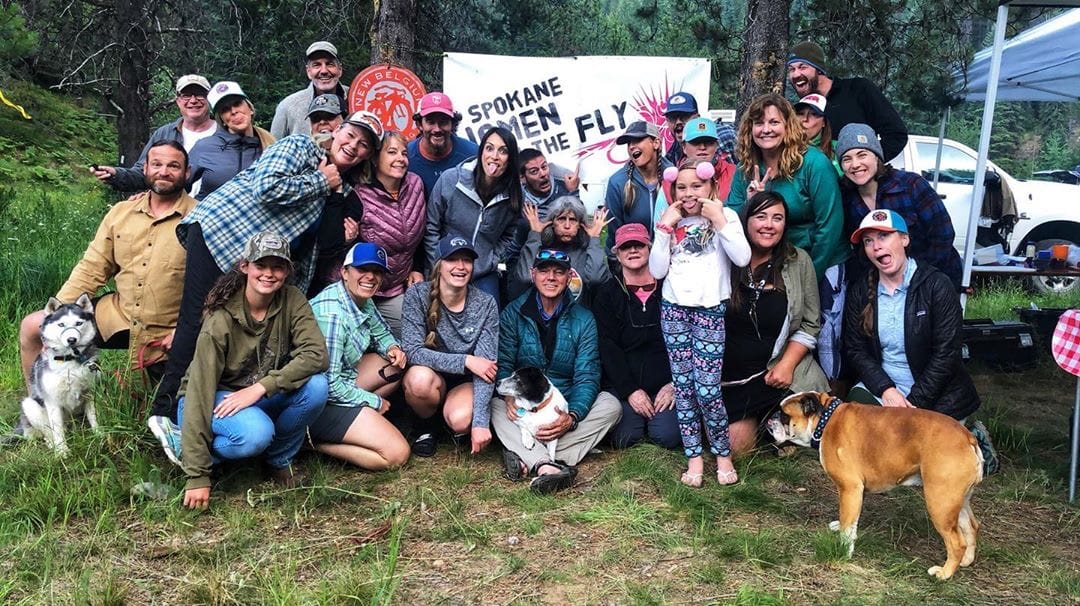In Spokane, Washington, a remarkable community of anglers has taken root. “Spokane Women on the Fly,” a group that celebrates the simple pleasures of flyfishing, has grown to become a source of inspiration, education and connection for its members.
In September, Spokane Women on the Fly (SWOTF) hosted a women’s casting session, inviting anglers of all ages and skill levels to come together and experience the joy of flyfishing. Trout Unlimited caught up with three SWOTF members: Peg Currie, Lisa Bargas, and Rob Ellis to discuss their involvement in the group, the importance of diversity and inclusion in flyfishing and how this community has become a haven for those who share their passion.
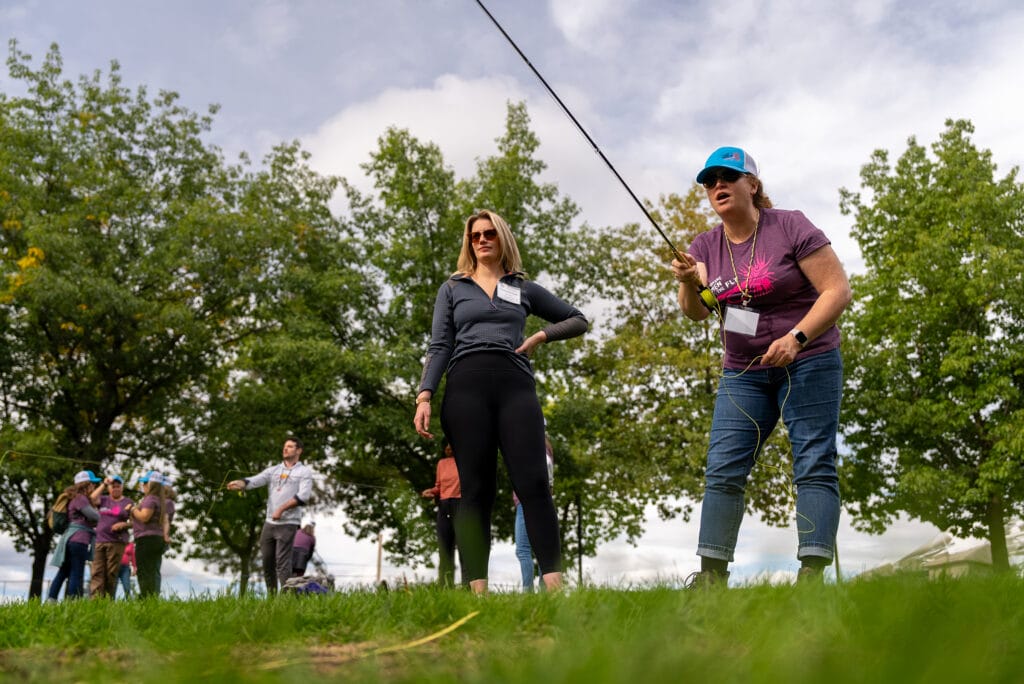
Q: Peg, you were one of the early members of Spokane Women on the Fly. Can you share your journey in this community?
Peg Currie: I was fortunate enough to become one of the original members, landing at around number six. The group was a welcoming place from the start. Over the years, it’s been amazing to witness the community’s growth and transformation as it adapted to changing times like the pandemic.
The group actually found its start in healthcare – I heard about SWOTF from one of our cardiologists at the hospital where we work. Healthcare workers, nurses – we have our own community, our own shared language used for caring for others – and that’s how it started to grow. It was easy to spread the word and come together.
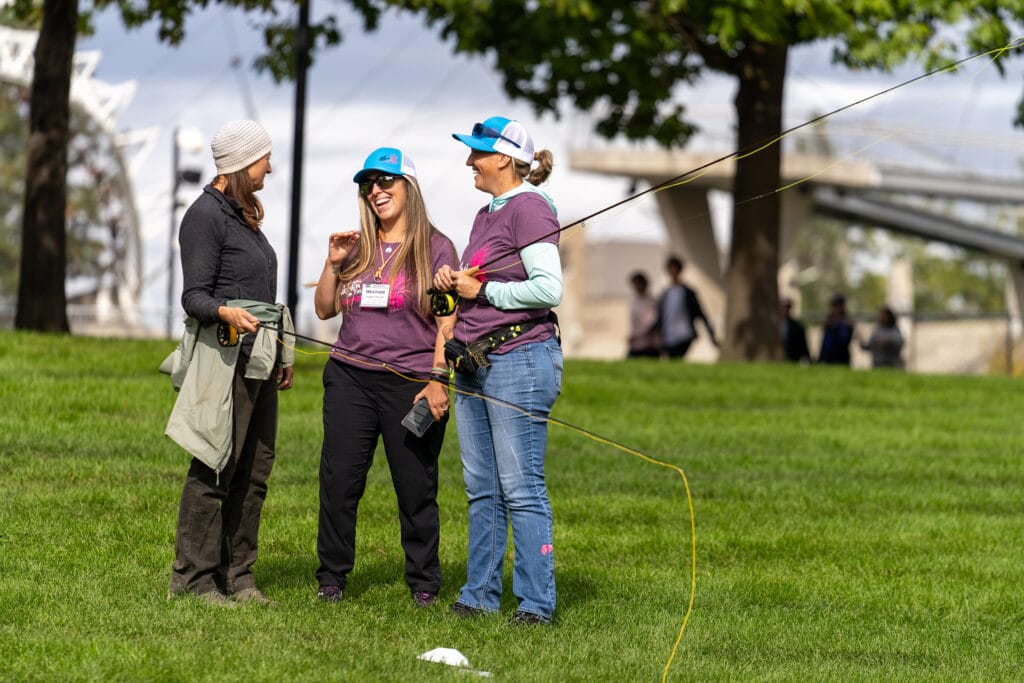
Q: Rob, you’re also part of Spokane Women on the Fly. What motivated you to join this community, and how has it enhanced your flyfishing journey?
Rob Ellis: When I retired, I wanted to make the most of it – spending more time fishing and floating, and that’s why I became involved with Spokane Women on the Fly. I came into the community through my connection with Heather Hodson at Sacred Heart. I think I got adopted into the group because I offered to make dinner on one of the outings and made prime rib – they definitely invited me back after that!
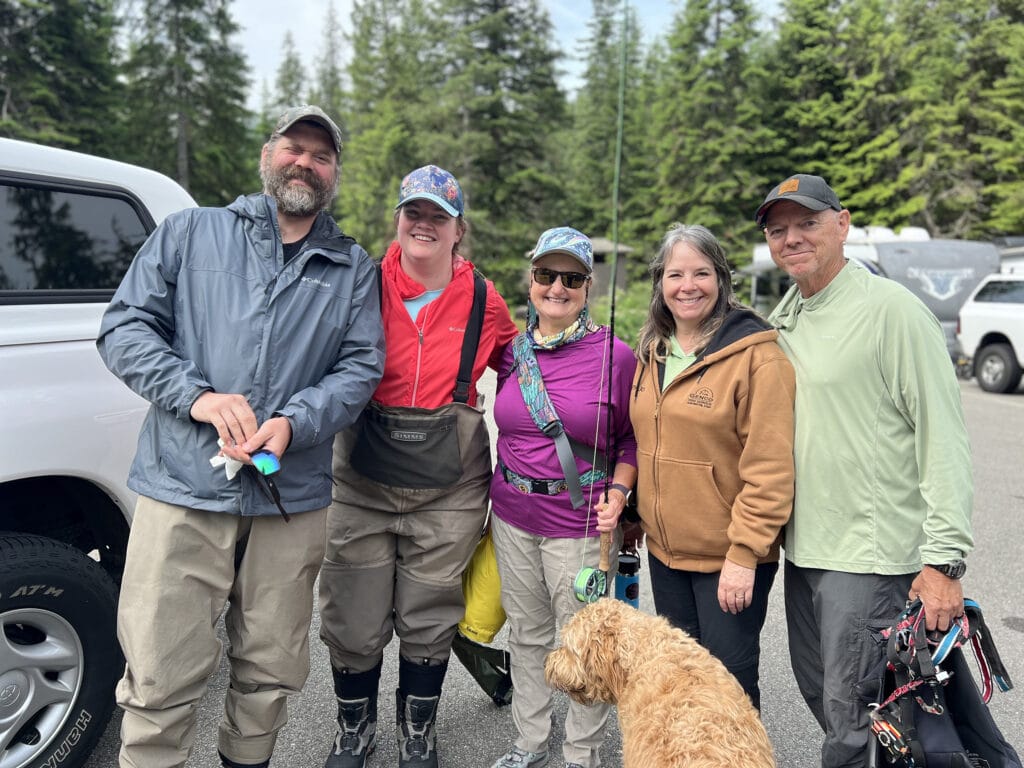
Peg: Yep, that’ll do it.
Zoe: I’ve heard that you are a talented oarsman as well.
Rob: Well, that’s one of the things I first told Heather: I’d rather row than fish. And she said, “we’re going to change that!”
Q: What are common barriers for women, or for anyone wanting to learn and become more involved with flyfishing? How does Spokane Women on the Fly address those barriers?
Rob: To a complete beginner, flyfishing can be intimidating. Our group breaks down flyfishing into different categories: fly-tying, knots, casting – we take it piece by piece, offering classes and mentorship. It’s a great way for beginners to feel welcome and build their skillset.
Peg: SWOTF has a mentorship program that brings together experienced and novice anglers. As a mentor, I remember what it’s like to be new – did you get tangled up? Yeah, I’ve done that. A million times. You’re doing just fine!
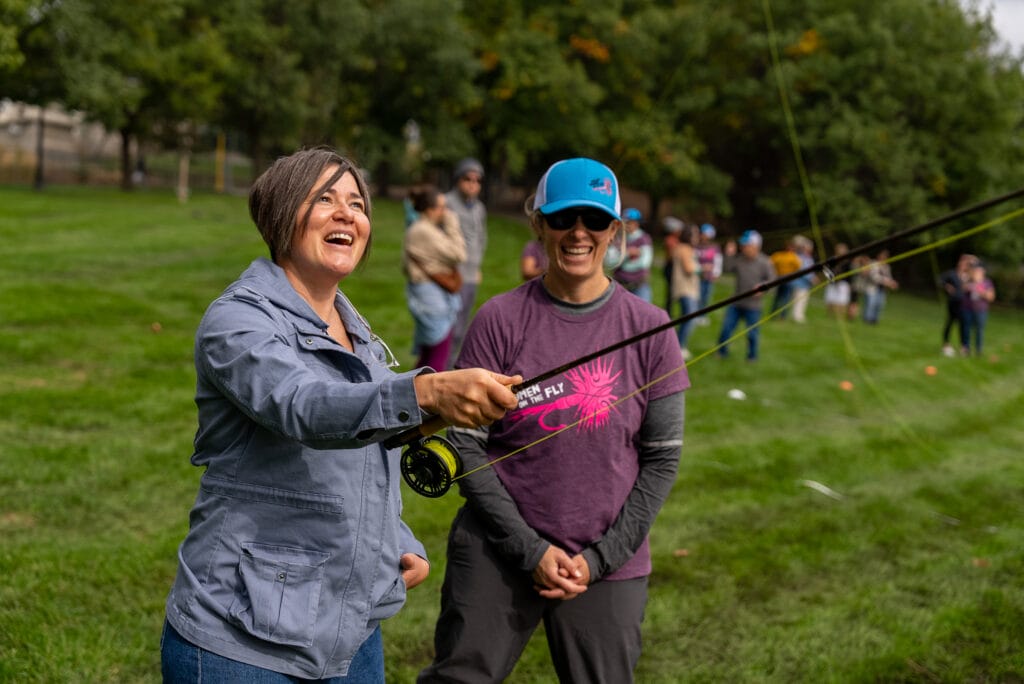
Lisa: I grew up deep sea fishing and lake fishing with my grandpa. I never knew about flyfishing until my boyfriend introduced me. He told me that it’s important to have a good cast, but that’s about all I knew. After about an hour of casting, I was frustrated – I didn’t know why I was doing it. When I was introduced to SWOTF, it was less intimidating, and I received patient instruction on how to cast and why it’s so important to have a good cast.
Peg: the group also hosts fishing meet ups, which is great for beginners wanting to get out on the water. Oftentimes, it’s hard to get started unless you hire a guide. SWOTF makes the first and second time fishing a lot more accessible for beginners.
Q: What does inclusion mean to you?
Lisa: it means everyone is invited: it doesn’t matter your gender, age, race, religion, experience-level. It’s just encouraging everybody to have a good time and help one another. For our group, it’s not just women – it’s family.
Peg: SWOTF is about getting together and sharing the joy in angling. And while we might not be amazing athletes, we’re tough gals. We have had a fair number of women that have had breast cancer, and its great exercise for them. Flyfishing is extremely meditative, especially for those who need some healing from illness or anything else in their lives.
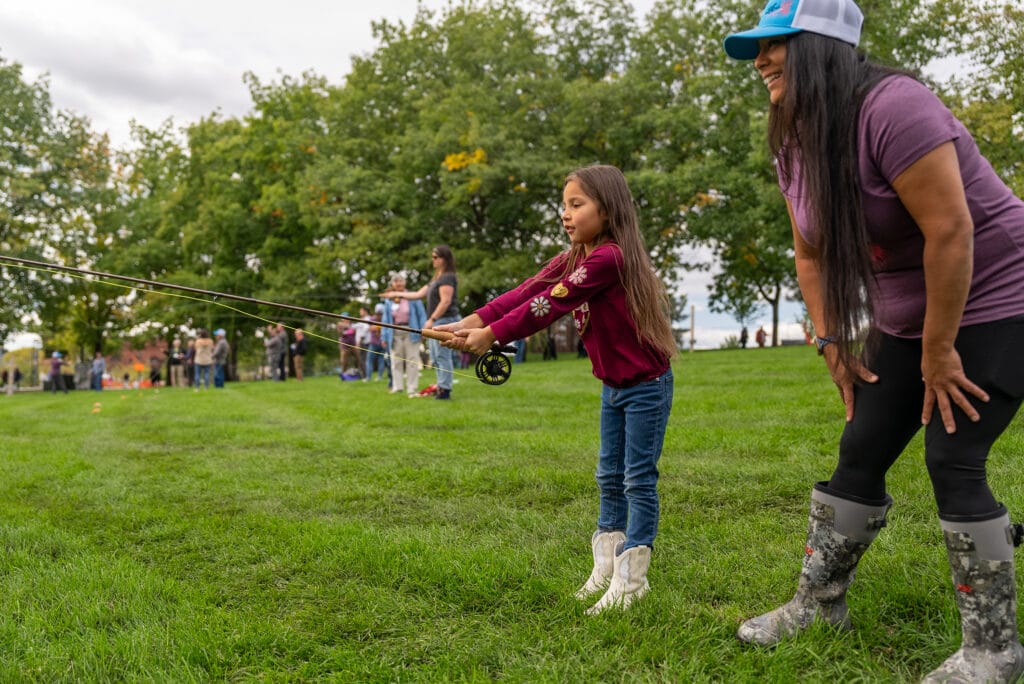
Q: Other than getting involved with a group like SWOTF, what are your tips for beginner anglers?
Peg: Flyfishing can be an expensive sport to get into – but it doesn’t have to be. There’s a lot of used equipment from people that are moving, getting out of the sport or upgrading their equipment. So, you can get a starter kit without stressing your wallet.
Lisa: I cannot stress enough the importance of finding a community to learn from – you are learning to flyfish, but you’re also learning how to respect the waters and properly handle fish.
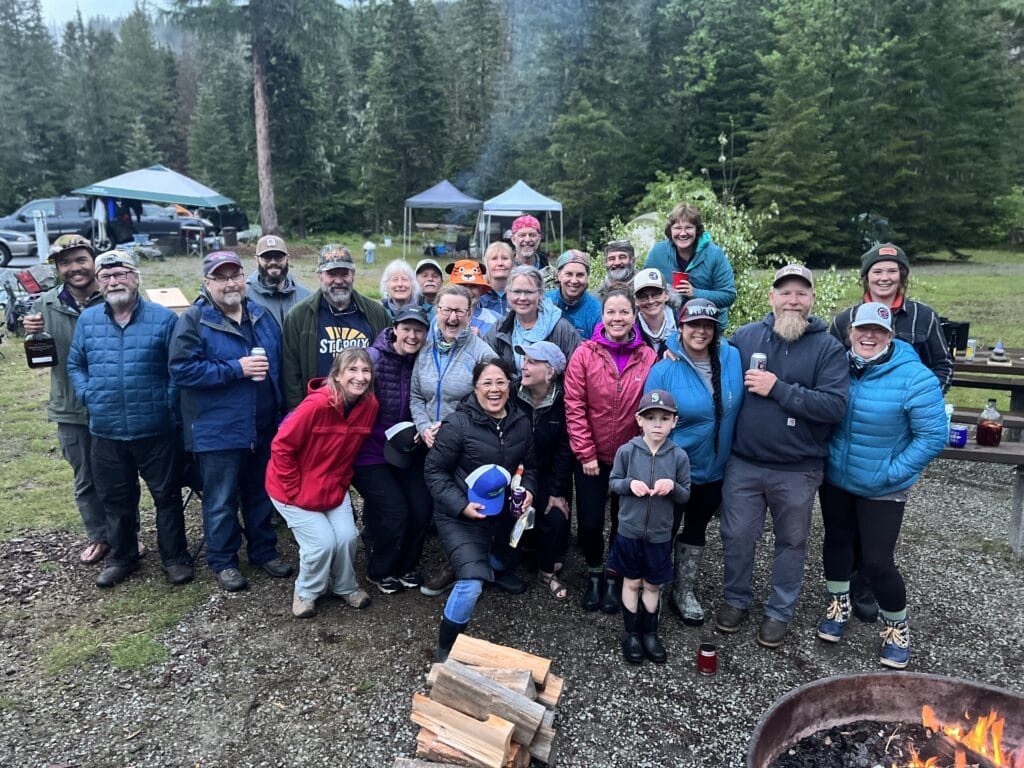
Rob: The more people you get outside, the more advocacy we get protecting those places.
Peg: Definitely, it’s those types of things that are important for the future of flyfishing and our watersheds. Who would have thought that learning how to flyfish would turn into so much more?
In a world where division often overshadows unity, Spokane Women on the Fly serves as a shining example of how shared passions can bridge differences, create friendships and offer healing. The message is clear: flyfishing isn’t just about catching fish; it’s about connecting with people and coming together to make the world a better place.


